CATEGORIES
Categories

MY PEDALBOARD STEVE HACKETT
WHAT THE PROG-ROCK ICON SEES WHEN HE LOOKS DOWN

Yasmin Williams
A FOLK GUITAR VIRTUOSO BRANCHES OUT ON HER THIRD ALBUM, ACADIA

Seven Stringer
Spiritbox guitarist Mike Stringer dispels the illusion of the band’s overnight success” while being stoked about their new album and playing to massive crowds

Martial Artists
COBRA KAI COMPOSERS ZACH ROBINSON AND LEO BIRENBERG TALK GEAR, SEASON 6 AND HOW THEY CONSCRIPTED TOSIN ABASI, CHARLIE ROBBINS AND POLYPHIA'S TIM HENSON INTO THEIR MUSICAL DOJO

EU Is Preparing New Sanctions On 'Shadow Fleet'
EU officials are close to an agreement to list more than 70 vessels.
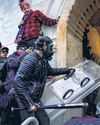
Rioters Say Pardons Apply to Other Crimes
Defendants argue they should also be absolved of additional charges

City Is Lab for Trump-Style Government
'Surf City USA' council embraces MAGA ideas in blue state of California

Western Tech Companies Avoid China
As tensions rise, some firms are moving production to other nations

CIRCLING BACK
From an incomplete Gregg Allman track to appearances by former ABB bandmate Derek Trucks, Warren Haynes’ gripping new album oozes with Allman Brothers Band mojo

New York Governor Weighs Ousting NYC Mayor
New York Gov. Kathy Hochul suggested Monday night she would consider removing New York City Mayor Eric Adams from his post amid turmoil in his administration and said she would meet with city leaders on Tuesday on how to bring stability to the government.

China Changes Tack on Tech Titans
In a meeting with Jack Ma and CEOs, Xi Jinping signals crackdown is over
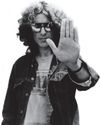
GEORGE'S OTHER MASTERPIECE
Living in the Material World, George Harrison's 1973 follow-up to All Things Must Pass, is a moveable feast that's ripe for rediscovery. Dhani Harrison dissects the making of the original album and producing the new 50th-anniversary box set

Flunking a Personality Test Can Cost You Your Dream Job
Employers are studying psychologists’ questionnaires, astrology and handwriting analysis

BUCK DHARMA
Blue Oyster Cult co-founder Donald Buck Dharma” Roeser revegls how the classic Reaper” riff come about ond the secret recipe to his beloved CheeseBerger guitar

PEAVEY
Now celebrating six decades in the music business, Peavey offers something for every kind of player. CEO Courtland Gray looks back on the company’s most beloved products, including gear designed with Eddie Van Halen

Spiral XP
SHOEGAZE SUPERFAN MAX KEYES EMBRACES OPEN TUNINGS, PITCH BENDS AND MORE ON HIS LATEST ENDEAVOR
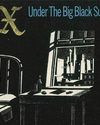
LOST CLASSICS: X
BILLY ZOOM RECOUNTS THE MAKING OF THE ICONIC L.A. PUNKS’ 1982 MAJOR-LABEL DEBUT, UNDER THE BIG BLACK SUN

Neon Nightmare
HOW SPIRIT ADRIFT'S NATE GARRETT CREATED A BRILLIANT ONE-MAN HOMAGE TO TYPE O NEGATIVE

Times' New Roman
ON ALBUM NUMBER FIVE, JINJER GUITARIST ROMAN IBRAMKHALILOV IS LAYING DOWN SOME OF THE HARDEST-SWINGING RIFFS OF HIS CAREER

DREAM ON
Forty years into their career, Dream Theater have received a vital transfusion via the return of original drummer Mike Portnoy. John Petrucci takes you inside the reunion - and the band's new album
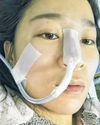
Chinese Women Face New Hurdles To Getting Divorced
Police are often reluctant to intervene in 'family disputes' involving abuse.

Zelensky Dubious About Talks
Ukraine’s president says he won't accept deals on war reached without Kyiv input

Diminished McConnell Makes A Lonely Stand Against Trump
In 2017, when President Trump was fresh in his first term, then Senate Majority Leader Mitch McConnell was asked by a student on a class trip what he thought of the new commander in chief.
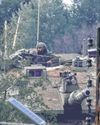
Israeli Forces to Extend Stay in Lebanon
Beirut pushes back on plan to remain in key locations after Tuesday deadline

Clean-Energy Program Sees Big Staff Loss
Roughly a quarter were fired or took buyouts as focus shifts to fossil fuels
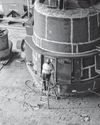
Australian Steelmaker Seeks Tariff Reprieve
BlueScope recorded 59% drop in firsthalf profit on lower prices, higher cost

DOJ Asks High Court to Allow Dismissal of Ethics Watchdog
Lower courts blocked firing of Office of Special Counsel head, citing federal law

JD Vance's Message at Munich
He confronts a governing class that has abandoned the values America and the Continent share. ee

Baseball's $392 Million Superteam Still Won't Stop Spending Money
The World Series champion Los Angeles Dodgers, led by Shohei Ohtani, already had the deepest roster in Major League Baseball. They went on an offseason spending spree anyway.

Don't Try This at Home
Comedians Kate Berlant and Jacqueline Novak are searching for their health holy grails-while trying not to fall for the bogus MAHA stuff.